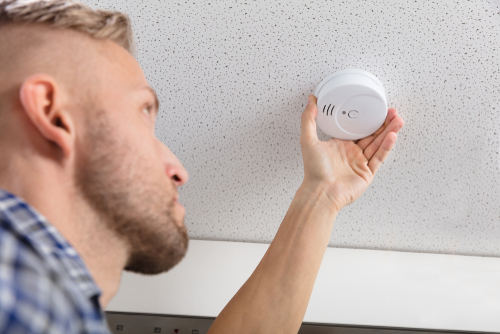
 With the coming winter also comes the increase in carbon monoxide poisonings.
With the coming winter also comes the increase in carbon monoxide poisonings.
That’s because we’re indoors most of the time, with the windows closed, and using our home heating systems.
Your home’s furnace or boiler can leak carbon monoxide (CO), creating a danger for you and your loved ones. CO poisoning is often called a silent killer, as it is colorless and odorless, and often occurs when people are asleep.
Read on to learn more about CO poisoning, and how to prevent your heating system from creating CO leaks.
According to the Centers for Disease Control, about 430 people die from carbon monoxide (CO) poisoning, and about 50,000 end up in the emergency room, each year.
But that’s only the beginning of the damage caused by carbon monoxide. Even if someone survives CO poisoning, the long-term effects can be devastating, as vital organs like the heart, lungs, and brain are starved of oxygen by carbon monoxide. Pregnant women are not only more vulnerable to CO poisoning themselves, but there is also a risk of miscarriage, stillbirth, or other fetal injuries.
The symptoms of CO poisoning are often described as “flu-like” and include:
Carbon monoxide is a normal part of the combustion process inside your heating system. If your heating system is functioning properly, that CO is contained within the heat exchanger, then sent through the flue exhaust vent which vents it safely out of your home.
The most common cause of heating system-related carbon monoxide leaks are cracks in the heat exchanger or flue exhaust vent. Another cause may be dirty components of the heating system, like a filter.
Your first and most essential task is to install carbon monoxide detectors on every level of your home (that includes the basement) as well as outside of all sleeping areas.
Take care of your CO detectors, testing them twice a year when you change the time on your clocks, and changing the batteries as needed (at least once a year). CO detectors need to be replaced every five years.
If you have natural gas in your home, we strongly recommend that you get a gas leak detector.
Prevent carbon monoxide leaks from your heating system with regular, professional maintenance tune-ups done by the trained, knowledgeable service technicians at Wesco Oil.
Contact us to schedule your annual heating system tune-up to keep your heating system running safely and efficiently!